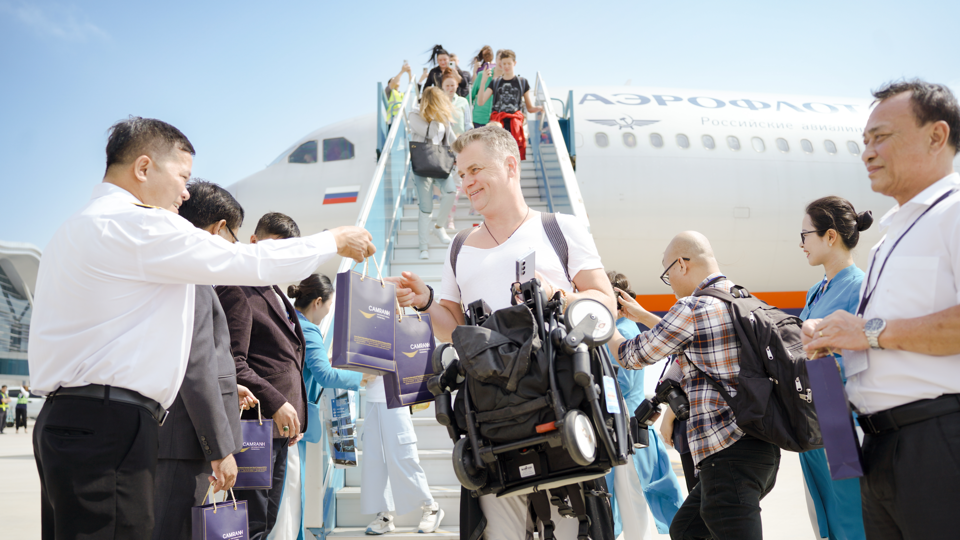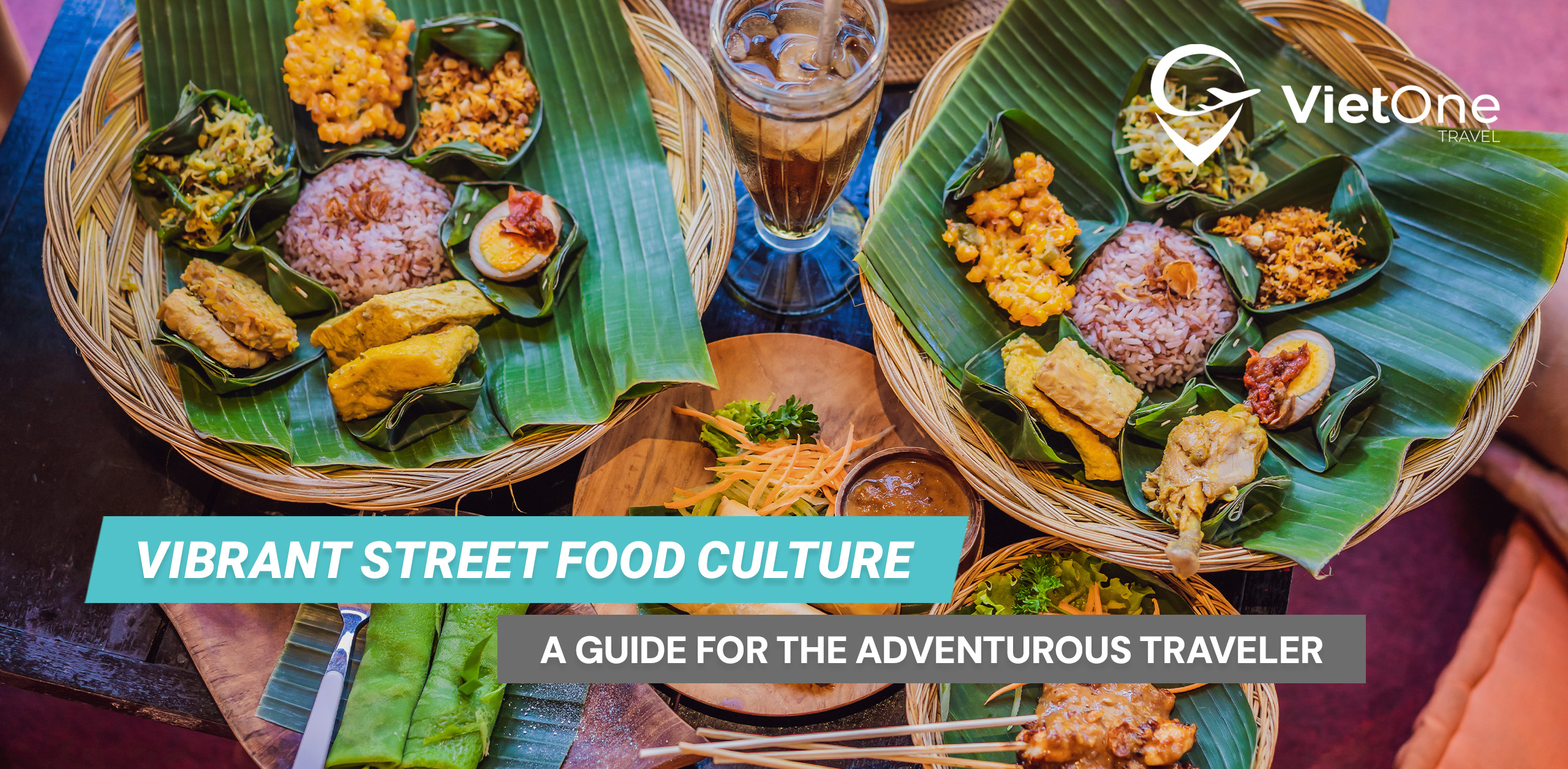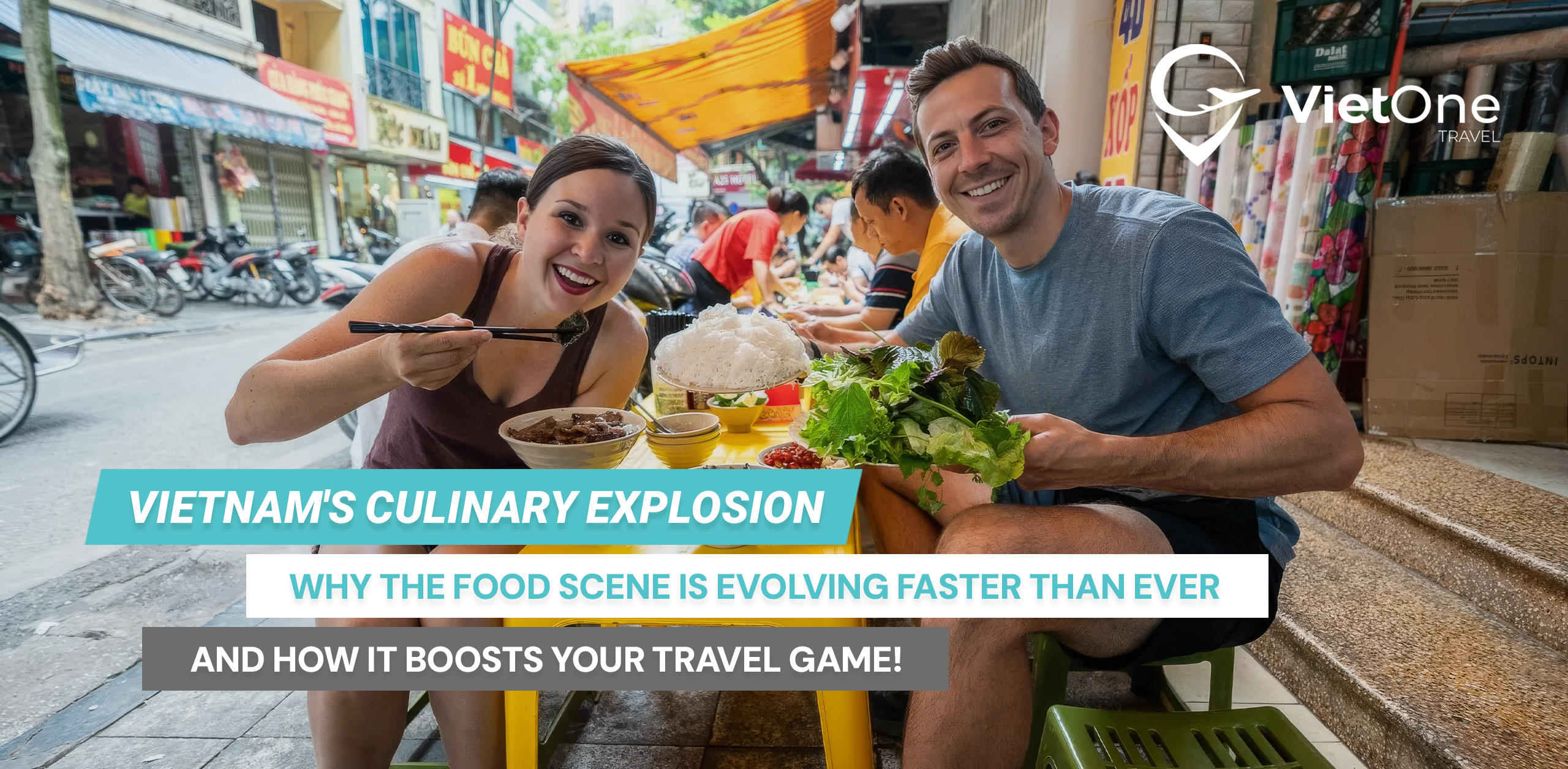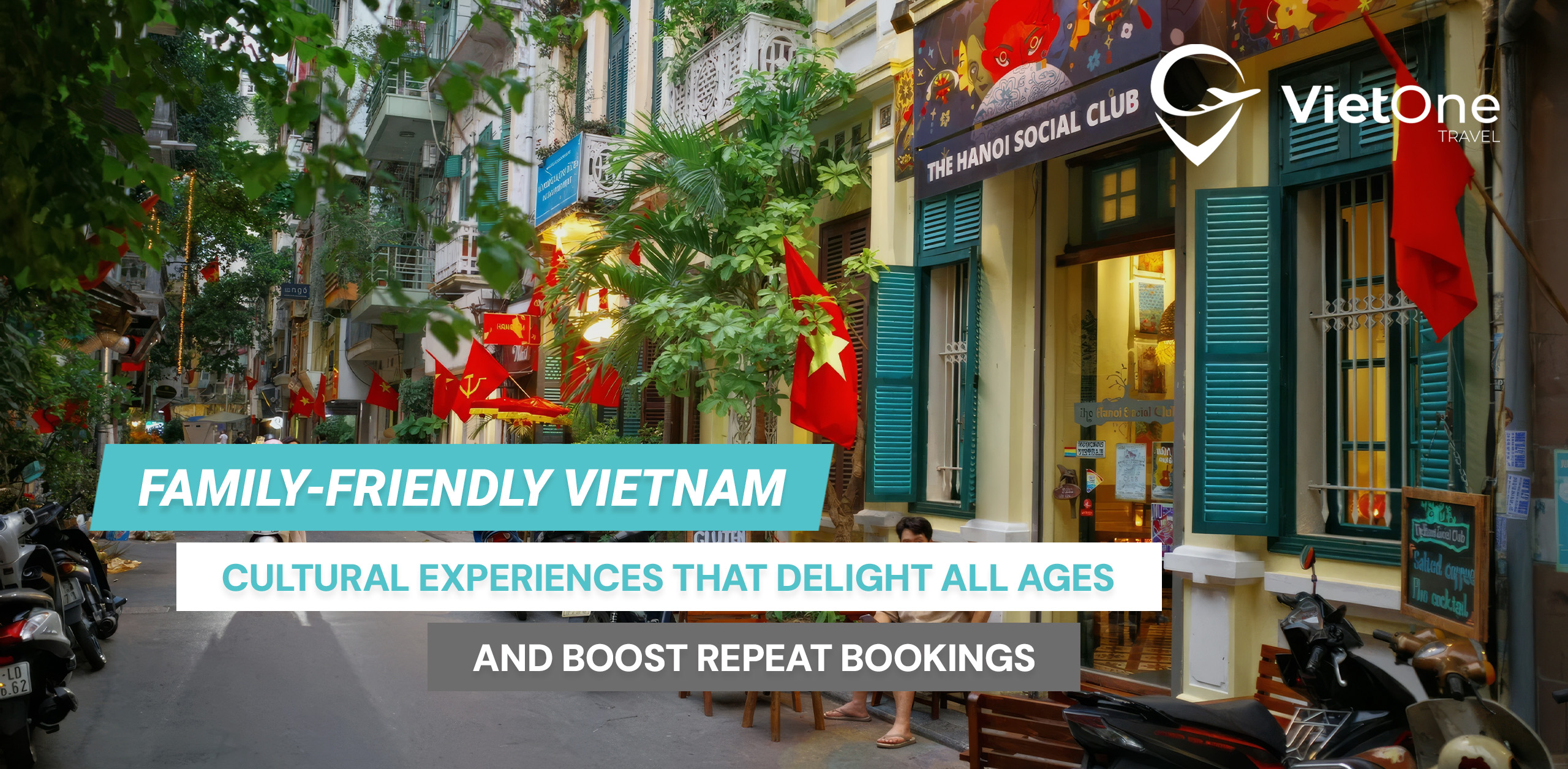Understanding the Russian market’s unique demands to maximize bookings and client satisfaction
The Russian Tourist Revival in Vietnam
Walk down the streets of Nha Trang today, and you’ll hear more Russian than Vietnamese. Restaurant menus appear in Cyrillic script, hotel staff greet guests with “Dobro pozhalovat,” and the sound of Russian laughter fills beachside cafes. This transformation represents a remarkable comeback story that smart travel agents can’t afford to ignore.
Russian tourist arrivals to Vietnam surged 84.9% to 232,300 in 2024, with Vietnam expecting 400,000 to 500,000 Russian arrivals in 2025. For travel agents, this represents more than just numbers—it’s a cultural shift reshaping Vietnam’s tourism landscape.
When Russian families plan their escape from harsh winters, they’re not choosing any tropical destination. Nha Trang has become their unofficial capital, where entire blocks cater to Russian clientele. Hotels display rates in rubles, restaurants serve borscht alongside pho, and tour operators speak fluent Russian.

“Nha Trang works perfectly for Russian families because it combines developed infrastructure with authentic Vietnamese culture—exactly what multi-generational groups need.”
The appeal goes beyond convenience. Russian families often travel in groups of 15 to 20 people, spanning multiple generations. Nha Trang’s wide beaches provide safe spaces for children while adults relax, something smaller destinations can’t offer.
Mui Ne attracts younger Russians seeking adventure. These coastal visitors arrive with GoPros and kitesurfing plans, representing the new generation of Russian tourists—more adventurous but still expecting quality service.
Ho Chi Minh City serves as their cultural gateway, though Russians prefer shorter city stays. After two or three days exploring Vietnamese history and street food, most groups head to the beach. The city works best as a cultural bookend to longer coastal stays.

The Russian Planning Timeline
Russian travelers approach Vietnam planning differently than other nationalities. Russian-speaking tourists finalize travel plans two to three months in advance, reflecting both practical and cultural considerations.
This timeline allows complex family dynamics to play out. The grandmother’s health concerns, parents’ school schedules, and young adults’ work commitments all need consideration. Smart agents who understand this extended decision-making process can build stronger client relationships.
Language plays a central role in their decision-making. Russian tourists don’t just prefer information in their native language—they require it for trust and comfort. When Russians receive perfectly translated materials with cultural context, it builds confidence that their needs will be understood throughout the trip.

Cultural Comfort Meets Vietnamese Adventure
Success with Russian travelers lies in balancing cultural comfort with authentic Vietnamese experiences. They want to try pho and visit temples, but also need familiar options when homesickness strikes or children need recognizable food.
“Russian families spend $80-120 per person daily for budget trips, $150-250 for mid-range, and $300-500 for luxury—but they all expect complete experiences, not just hotel rooms.”
Russian families prefer connecting rooms for extended families, swimming pools as essential gathering spaces, and spa facilities that appeal especially to Russian women who view wellness treatments as vacation necessities rather than luxuries. The best Vietnamese hotels serving Russians offer traditional congee alongside Russian-style pancakes at breakfast—it’s about having choices, not avoiding local culture.
Dining preferences reveal this same balance. They eagerly join Vietnamese cooking classes and street food tours, often becoming coffee culture enthusiasts. But successful restaurants maintain familiar international options for cultural fatigue moments.
The Economics of Russian Hospitality
Russian tourists think in complete experiences rather than individual components. They prefer all-inclusive packages covering accommodations, meals, activities, and transportation, even if total costs appear higher than separate bookings.
Payment preferences reflect Russian business culture. Younger travelers use credit cards comfortably, while older Russians prefer bank transfers for larger amounts. Installment options prove popular for big family groups, and clear pricing in both USD and rubles builds trust.

Seasonal Patterns and Booking Success
December through March represents peak Russian season—families escaping harsh winters for tropical warmth. These travelers book four to six months ahead and focus almost exclusively on beaches. Pricing premiums are expected and accepted during this period.
April, May, October, and November offer sweet spots for agents and travelers. Demand remains strong but pricing becomes flexible, allowing attractive packages while maintaining margins. These shoulder seasons attract mixed beach and cultural experiences.
Summer months bring younger, budget-conscious Russians who can’t travel during expensive winter seasons. They book shorter trips, focus on activities and adventures, and represent relationship-building opportunities for future higher-spending bookings.
Building Trust Through Understanding
Success with Russian travelers ultimately depends on trust developed through demonstrated cultural understanding. This goes beyond language translation to cultural translation—understanding collective family decisions, grandparents’ comfort influence, and the need for detailed communication.
“Smart agents who invest in understanding Russian culture position themselves at the center of Vietnam’s most promising tourism growth story.”
The most successful agents understand not just what Russians want to do in Vietnam, but why. A grandmother visiting Vietnamese temples seeks spiritual connections with her cultural values. A father asking detailed beach safety questions fulfills cultural expectations about family leadership.
This understanding manifests practically through detailed pre-arrival Russian-language information, 24-hour Russian-speaking support, and cultural etiquette guidance. It’s not about frequent problems—it’s about psychological comfort knowing help is available in their language.

The Smart Agent’s Opportunity
Vietnam’s target of one million Russian visitors represents a deeper transformation in global tourism positioning. Russian travelers bring different expectations and spending patterns that push Vietnamese providers toward greater international sophistication.
The opportunity extends beyond immediate bookings to building long-term relationships with Russians who, when satisfied, become powerful advocates for both Vietnam and their booking agents.
Vietnam’s appeal to Russian travelers combines affordability with quality, adventure with comfort, and exotic experiences with reliable service. For agents who understand these unique perspectives, the Russian market represents exceptional growth potential.
Ready to tap into the growing Russian market? VietOne Travel’s local expertise and Russian market knowledge can help you create winning packages that keep clients coming back.





